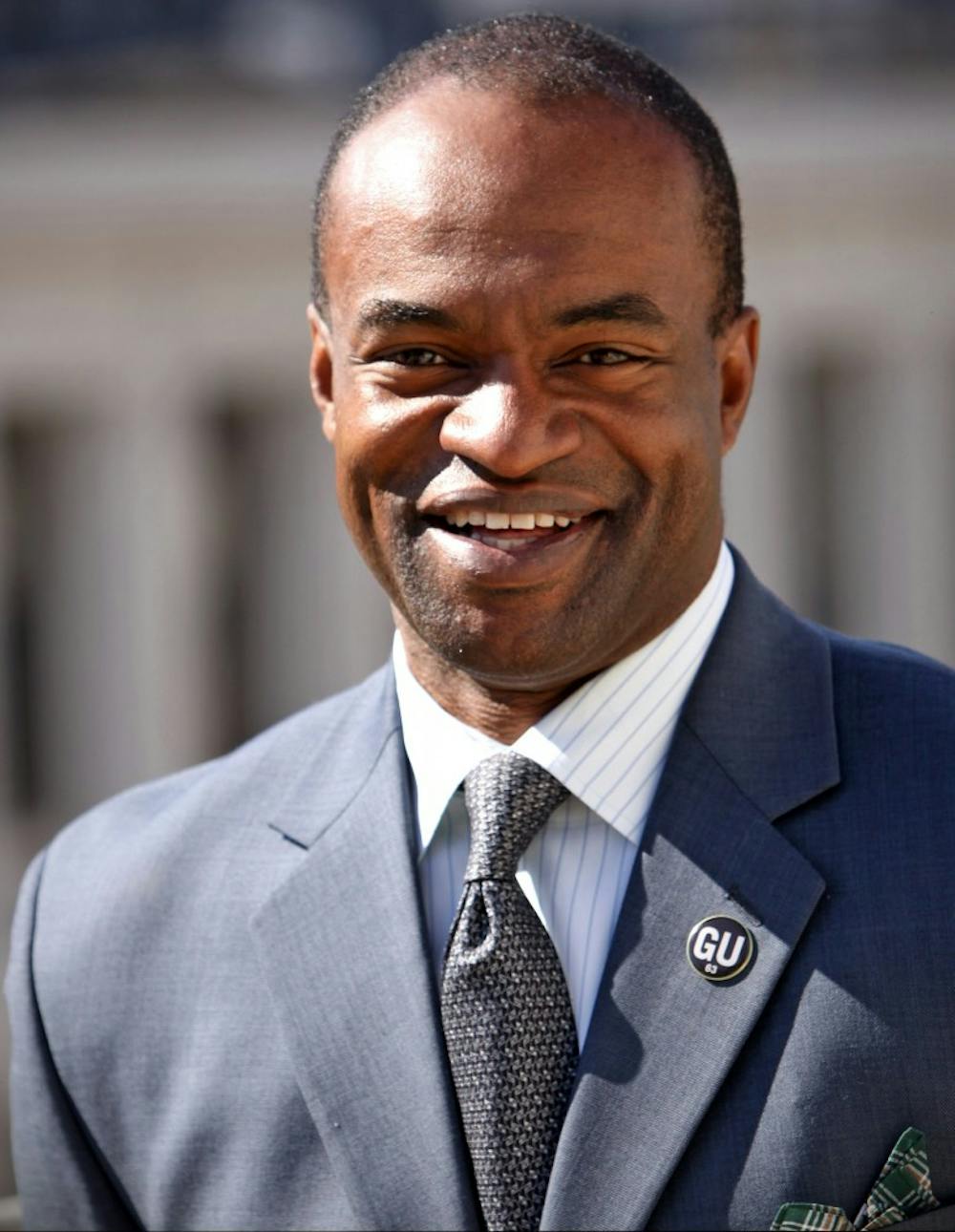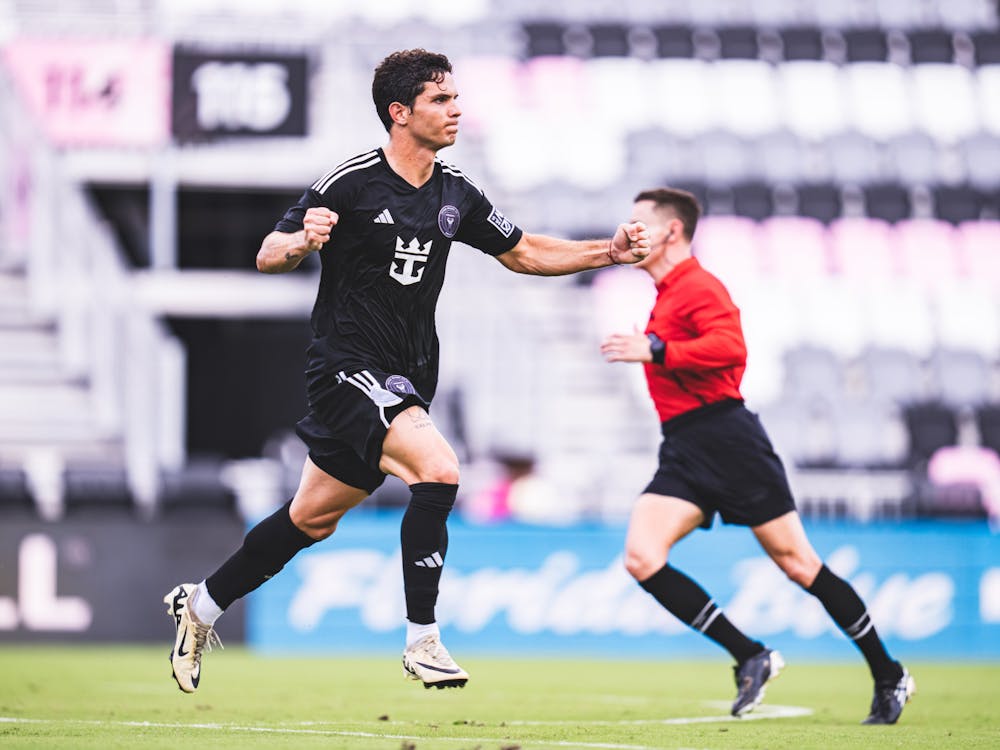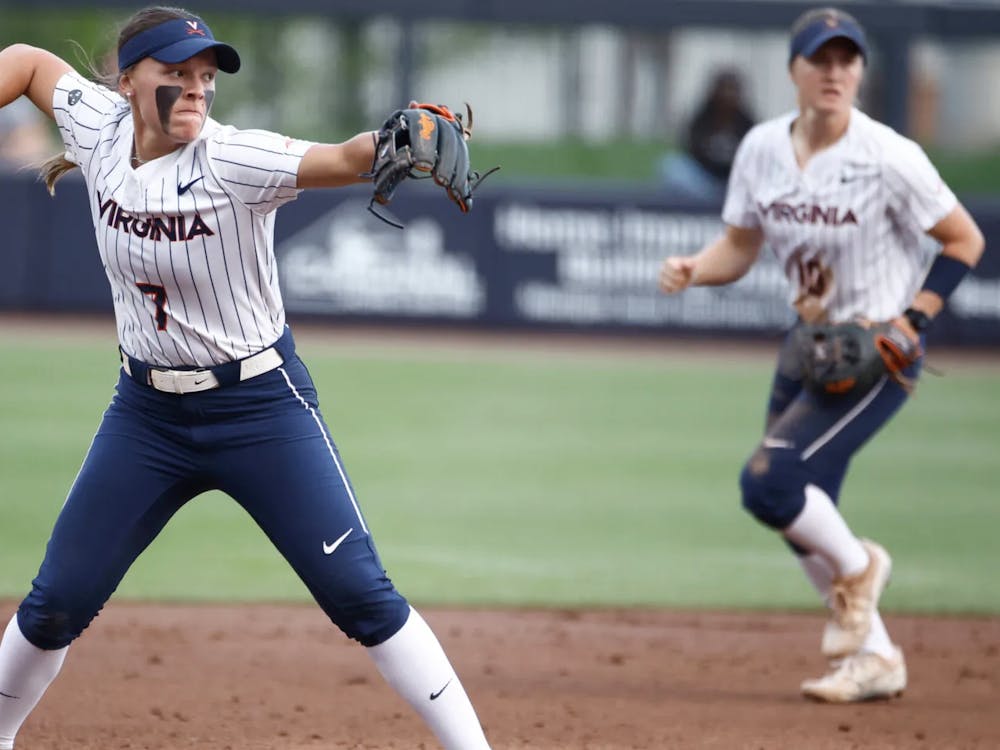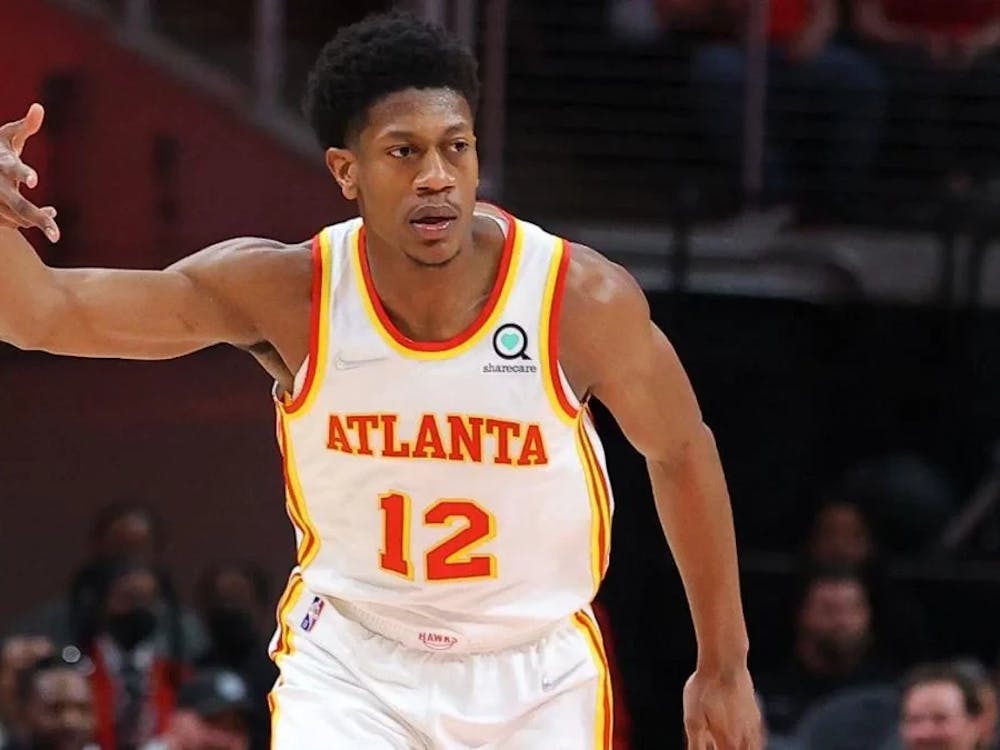In the weeks following the tragic events in Charlottesville on Aug. 11 and 12, one could pass by any TV screen and see images of torch-wielding white supremacists marching down the Lawn, the graphic video of a car ramming into counter-protesters — killing one — and violence breaking out in the streets.
Simultaneously, the NFL preseason began, and TV screens began to show NFL players kneeling and holding up their fists during the national anthem. Once again, the meaning of these protests re-entered the ongoing media debate.
The meaning of the protests, which began in response to police violence against minorities, had grown even larger following Aug. 11 and 12. The protests and the events in Charlottesville had become connected by a single thread.
DeMaurice Smith, Executive Director of the National Football League Players’ Association, is inextricably tied to both events. As the leader of the NFL’s player union, he represents the players’ interests and their rights to demonstrate. But as an alumnus of the University’s Law School, the tragedy in Charlottesville hit close to home.
“To sit and watch here 25 years later, a group of people carrying torches in the middle of the night walk past, not only through Grounds,” Smith said. “But walking past that chapel and walking through a University built by a person who obviously was flawed, but believed in the civil rights for assembly and the rights of free speech, is jarring.”
Smith has built his career around fighting for the rights of others and was even awarded the Eleanor Roosevelt Human Rights award. For him, seeing the demonstrations in Charlottesville brought back memories.
“I got married in that chapel right where those tiki torch-wielding people marched by,” Smith said. “You think back and it hasn’t been but so long, but I remember getting racist emails and letters when I was a lawyer here in [Washington,] D.C. when my wedding announcement came out. So much so that we had to hire security for our wedding.”
Smith was unanimously elected as the NFLPA Executive Director in 2009. Since then, he has negotiated an NFL lockout and fought for improved safety and healthcare for NFL players. Most recently, he has been called to speak up for players’ rights when it comes to national anthem protests.
“Football is obviously a big business and we love the fact that we have our fervent fans who love the sport, but our men and our families are still members of their community and there are issues they care deeply about,” Smith said. “And what they hear from me is, football is a great thing, but it’s what you do — it’s not who you are.”
The national anthem protests have prompted mixed reactions across the country. Some state that NFL players and other athletes who have spoken out about contentious issues should just “stick to sports.” The critics of these protests include politicians, professional athletes and sports broadcasters and commentators, such as Sarah Palin, Stephen A. Smith and Jermichael Finley.
“The irony is, you have a group of people who want to hate athletes by saying they are coddled and insular and not connected to their community, and on the flip side, if they dare say something about what’s happening in their community, that they should just shut up and play,” Smith said.
Some believe that this mentality cost Colin Kaepernick his job in the NFL. The quarterback sparked protests in August 2016 by kneeling during the national anthem. He opted out of his contract with the San Francisco 49ers at the end of last season and has yet to sign with another NFL team.
Even without Kaepernick’s presence in the league, the protests have grown since the NFL preseason began at the end of August. On Aug. 21, Cleveland Browns tight end Seth DeValve became the first white player to kneel during the national anthem. Days before, former Cavalier and current Philadelphia Eagles defensive end Chris Long showed support for teammate Malcolm Jenkins by putting his arm around the safety while Jenkins raised his fist during the national anthem.
“Is it thrilling when I see one of our members talk about things in such an eloquent, passionate and thoughtful way? Absolutely,” Smith said. “Do I love the fact that it’s a Cavalier? Absolutely. But what I love the most is that’s who our men are.”
Regardless of what critics might have to say, these NFL protests are growing, with some players such as Kaepernick and Jenkins donating to causes and foundations that aim to empower minorities along with their protests.
While the country may have flinched at the sight of footage showing the violent conflict and hateful speech spouted from Charlottesville on Aug. 11 and 12, there’s no denying that the events brought a renewal to the anthem protests and other forms of activism.
“The way I look at it is, it’s activism,” Smith said. “And it’s free speech. And it’s caring about the things in your community … I love the fact that people have a difference of opinion about whether the players should protest or not. Because the fact that they have a difference of opinion — and have expressed it — is a validation of our first amendment rights.”
At the same time, TV screens show NFL players of different races putting their arms around each other in support. They show people in Charlottesville and around the country comforting each other and demonstrating peacefully for equality.
“I go back to the single thread … that seamless thread runs through to people who wanted to stand up against hate. It runs through a woman who was there and it cost her her life. It runs through players who want to continue to have a voice about what’s happening in their community and it runs through not only our union, but unions across America who are made up of people who are simply fighting for better wages, better health care and a better life.”
Smith believes that this inextricable connection between the anthem protests and the rallies in Charlottesville is significant — it builds upon the foundation America is based on.
“Anytime that you place the belief in freedom and fairness in the context of history, what you find is that it’s inspirational to most people and terrifying to some people,” Smith said. “And the reality is that it’s terrifying to some people because they feel that they will lose control. And it’s inspiring to others because they believe in fairness and freedom. And I could argue that’s what our country is based on.”





